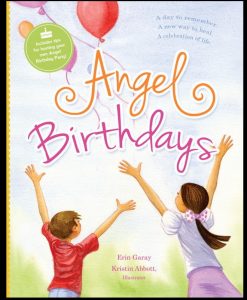
I’ve been thinking and writing about death anniversaries for years. Most recently it was “Twelve Ways to Celebrate a Loved One’s Death Anniversary.” This time around, I’d like to explore questions related to the realization the need to acknowledge the date of a loved one’s death naturally fades over time. Sadly, when we fail to remember ‘the big day’ a few years down life’s road, we’re saddened and feel a measure of guilt on top of the sorrow.
Here’s what I think happens: as time passes we successfully integrate our memories of the deceased into our daily lives. No longer do they bring us to tears; instead, they’re a cause for reflection and may even bring a smile.
If you’ve already read: “Anticipatory Grief: One Woman’s Story”, published last year, you’ll know much of the backstory here. Long story short, my ex-husband Matt died on June 16th, 2015. When my grief was fresh, I acknowledged every anniversary, it seemed. The first day, the first week, the first month’s anniversary, and every one after that – culminating in a family ash-scattering event on the first year anniversary. That’s a fairly common reaction to recent loss – early on, your grief takes up a great deal of your time each day.
The second anniversary of his passing brought only phone calls to other family members to share a few memories of the man we knew and loved. No gathering, no ritual. And, you ask, what about the third year?
While I remembered the anniversary weeks ahead of time and acknowledged its imminent arrival; I’ve got to be honest and tell you June 16, 2018 came and went without comment. And yes, I felt certain guilt about it – but I also realized the omission meant I was healing from the trauma of his death – as were our sons. Huzzah!
Please understand; this doesn’t mean we’ve forgotten Matt. In truth, we’ve turned our focus from the sadness and misery of his untimely passing. Now, it’s our good memories that dominate; and the recollections of the horrors of his last months on Earth have faded into the background of our lives.
Let’s Talk about the “Why” of Acknowledging Death Anniversaries
It’s simple, really: in our society, it’s common to mark significant days in our lives. Certainly, the death of someone dear to us fits the description of ‘significant’ – as much so as a birth, graduation, marriage or divorce. Combine that propensity with the human penchant for staging rituals to mark such events – and you’ve got the foundation of the practice of celebrating death anniversaries. The events we plan bring us closer, if only for a while, both to the deceased and to our own grief. It’s an opportunity to collectively grieve – and continue to process of integrating the loss into our lives. When we no longer need such support, it’s natural for us to let go of the ritual. In other words; the “how” of acknowledging the death anniversary changes; over time, it may become little more than a passing thought. It doesn’t have to be, though.
Some Low-Key Ideas to Celebrate a Death Anniversary
It’s interesting to note those living in the U.K. don’t celebrate the date of a loved one’s death; it’s just not in their cultural spectrum of grief-related activities (source). As human beings living in society, we are truly culture-bound. Still, here in the U.S., there’s a lot of focus (online anyway) about such celebratory events. If you, like me (and my sons), feel the intensity of the need to acknowledge the death anniversary of a loved one diminishing; you don’t have to give the practice up altogether. Just “change it up” a bit. Here are a few ideas:

Invite family and/or friends over to share a meal, made up of at least some of the deceased’s favorite foods. Ask guests to bring any photos, along with the stories to go with them.
I don’t know if a float trip is considered low key, but one of our friends plans a memorial float trip in memory of her brother. They’ve been doing it for years now and now as the family grows, his spirit lives on.
- Attend a sporting or cultural event; one which would set your loved one’s heart ablaze.
- Light a candle in their memory.
- Listen to their favorite music or watch on of your loved one’s favorite films.
- Compile photos into an album. It’s easier, of course, if they’re digital photos – you can use an online service to compile and print the finished tribute.
- Bring family and friends together to create a memorial garden. (If the idea appeals, check out DIY Memorials: Planning a Loved One’s Memorial Garden.”)
- Donate to–or better yet, volunteer with – a cause close to your loved one’s heart.
There Will Come a Time When…
As you naturally move through grief, you’ll find your focus not on your loved one’s death, but on their life. When that happens, it makes sense to shift your attention instead on your loved one’s birthday. This positive focus can bring you and your loved one’s other survivors a great deal of happiness; a delightful (and necessary) change from the sorrow integral in death anniversary celebrations.




